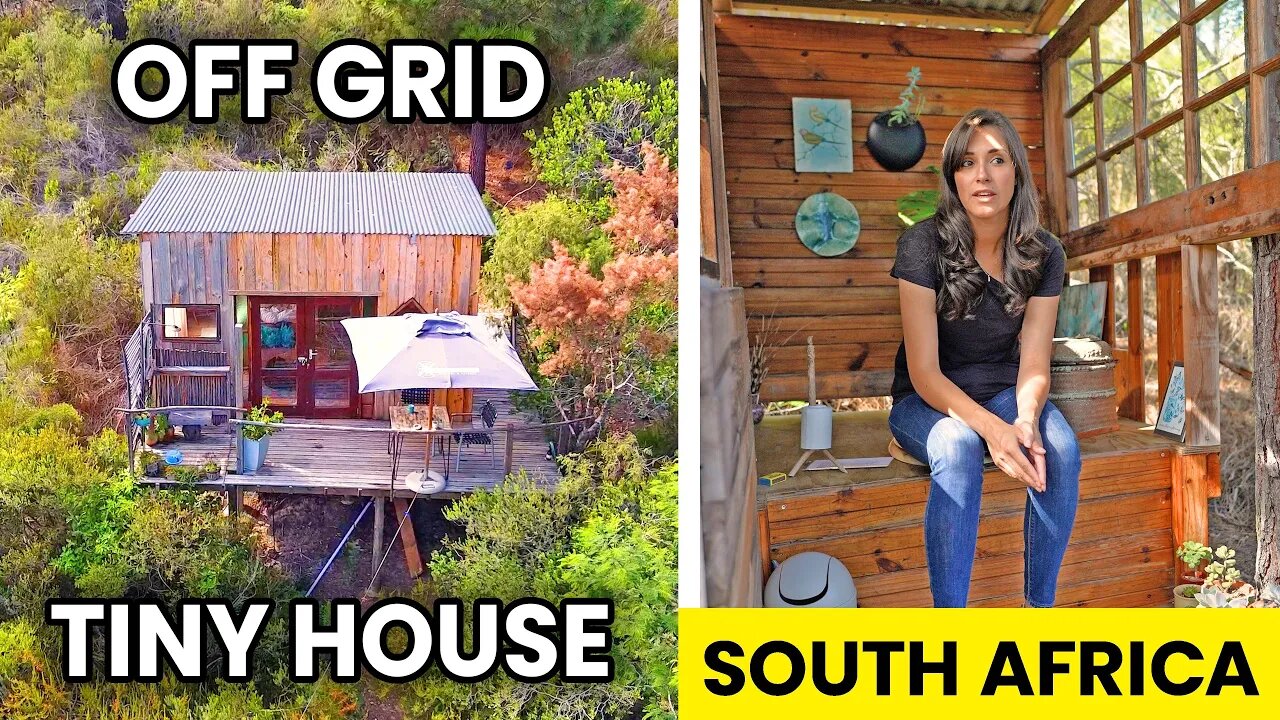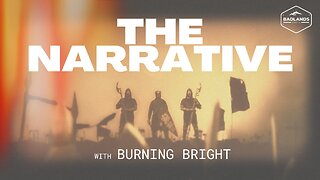Premium Only Content

Off Grid Tiny House in Wilderness with Composting Toilet | South Africa | Garden Route | Outeniqua
#tinyhouse #gardenroute #capetown #southafrica #alternativeliving #digitalnomads #tinyhouses
We're Steve and Naz. We have been Digital Nomads and Remote workers for three years as we travel and explore the planet.
In today's video we stayed in this off the grid cabin tiny house in the middle of the Fynbos forest in Wilderness, Western Cape, Garden Route, South Africa.
We loved it! Wilderness is a seaside town on the Garden Route of the southern Cape in South Africa. It is situated a short distance east from the city of George, on the N2 down the Kaaiman's River Pass. It is near Map of Africa.
✉ ✉ SIGN UP TO OUR EMAIL UPDATES HERE: www.Altliving.co ✉ ✉
👉🏻 👉🏻 Follow Us
👉🏻 Instagram: @steveandnaz
👉🏻 Telegram: @AltLiving
👉🏻 Email Updates + Web Site: www.Altliving.co
👉🏻 Facebook: @AltLivingTinyHouses
Do all your shopping through with our Amazon link: https://amzn.to/36w12wJ
(As an Amazon Associate, we earn commission when you purchase 'through' some of our special links above... Even if you purchase nearly any other product on Amazon! And at no extra cost to you.)
Off-grid living is the practice of living without access to public utilities such as electricity, gas, and water, and without relying on the traditional infrastructure of modern society. Off-grid living has become increasingly popular in recent years due to the desire to live more sustainably and reduce the environmental impact of one’s lifestyle.
Off-grid living is not a one-size-fits-all lifestyle, as there are different levels of off-grid living. Some people may choose to live completely off-grid, while others may opt for a hybrid approach, connecting to the grid for some services while living primarily off-grid.
The benefits of off-grid living include reduced utility bills, increased independence, and greater connection with nature. It also provides an opportunity to reduce one’s environmental footprint by relying on renewable energy sources such as solar or wind power. Finally, off-grid living can be a great way to save money and live within one’s means.
Despite the benefits of off-grid living, there are some important considerations to keep in mind. In order to live off-grid, one must be prepared to invest in the necessary technology, as well as the time and effort to maintain it. Off-grid living also requires a more self-sufficient lifestyle, which can be challenging for those accustomed to a more reliant lifestyle.
The technology required for off-grid living includes renewable energy sources such as solar, wind, or hydro power; energy storage systems such as batteries; and water collection and purification systems. It is important to research the various options available in order to determine which system will best meet one’s needs.
In addition to the technology, off-grid living requires a lifestyle change. This can include learning how to grow and preserve food, conserve water, and develop strategies for waste management. It also requires developing a plan for dealing with emergencies, as well as learning basic skills such as carpentry, plumbing, and electrical wiring.
Finally, off-grid living requires a commitment to self-reliance and resourcefulness. It is not a lifestyle for everyone, but those who choose to pursue it will find it to be a rewarding and fulfilling experience. Off-grid living can provide a greater sense of freedom, independence, and connection with nature and spend time with Him.
Link to this Airbnb: https://www.airbnb.com/rooms/41393326
🎧🎶 Music licensed by SoundStripe.
Get your own music at a discount: https://soundstripe.com?fpr=steveandnaz
Important: Remember to use promo code: 'STEVENAZ' for your discount at checkout.
-
 22:17
22:17
Alt Living - Tiny House, VanLife, RV, Off Grid
10 months agoVAN LIFE ADVENTURE: Escaping a flood?! STUNNING DRIVE to BANFF, CANADA 🚐 🐻 ☀️
2321 -
 LIVE
LIVE
SpartakusLIVE
8 hours agoThe BADDEST Duo in WZ Exhibits PEAK Physique || Duos w/ Sophiesnazz to start, quads later
10,040 watching -
 2:49:37
2:49:37
RattlesnakeTV
19 hours ago $0.10 earnedLIVE DEBATE! Lord Jake vs Crazy Feminist
14.1K10 -
 4:00:42
4:00:42
Badlands Media
11 hours agoThe Narrative Ep. 35: Codex of Truth
82K40 -
 3:55:56
3:55:56
Due Dissidence
13 hours agoSchmuley TRASHES Shapiro, Maxwell Sings For Pardon, Uhuru Doc Preview - Live From St. Louis!
39K38 -
 LIVE
LIVE
Lofi Girl
2 years agolofi hip hop radio 📚 - beats to relax/study to
376 watching -
 2:23:21
2:23:21
PandaSub2000
5 days agoMadison VR (Part 4) | PSVR 2000 (Original Live Version)
18.6K2 -
 2:34:32
2:34:32
Badlands Media
5 days agoCODEX 9/11
295K253 -
 1:53:43
1:53:43
Nerdrotic
8 hours ago $0.30 earnedMysteries of 3I/ATLAS | Forbidden Frontier #113
52.1K5 -
 2:04:21
2:04:21
vivafrei
1 day agoEp. 278: D.C. Peace Wave! Big Tish & Nipple Judge SPANKED! "Maryland Man" Trafficker FREE & MORE?
109K129